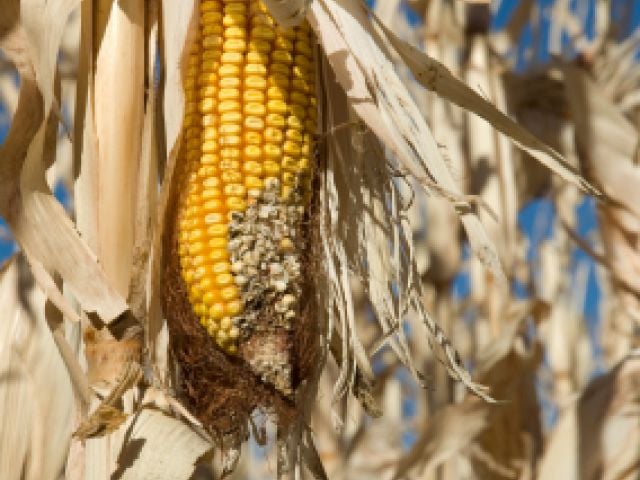Catch up on the latest news and analysis from EWG’s team of experts.
Displaying 1841 - 1860 of 4056
Another Reason To Label Genetically Engineered Food: 2,4-D
Now that government agencies have given the green light to Dow AgroSciences to sell 2,4-D-tolerant, genetically engineered corn and soybeans and OK'd dousing them in Enlist Duo weed killer, there's...

Frac Sand Mining, Coming to You Soon?
The boom in hydraulic fracking to extract natural gas and oil has created a huge demand for silica sand.

Federal Antibiotic Regulations Aren’t Cutting It
The staggering amount of antibiotics used in raising industrial livestock continues to rise, according to a recent (Oct. 2) Food and Drug Administration report. And most (70 percent) of those drugs...

Reducing Water Pollution Would Generate Billions in Economic Activity
Cleaner water in the Chesapeake Bay could mean billions of dollars in economic growth for the region.

EWG’s Women of Courage: Ayana Elizabeth Johnson
What does it take for a small Caribbean nation to implement strong, sustainable and popular ocean conservation practices? A team of experts, an island community dedicated to preserving its way of life...

Ending Hunger: The Problem is Poverty
If we're going to succeed in feeding the world, it will be because we educate and train farmers in countries with persistent hunger and develop innovative and strategic ways to lift people out of...

GE Labeling Would Cost Peanuts, New Study Finds
A recently released study by the economic consulting firm ECONorthwest concludes that requiring genetically engineered food to be labeled would cost Americans a mere $2.30 per person per year.

California Makes it Law: Label Toxic Flame Retardants in Furniture
California scored a big win for human health and the environment today (Sept. 30) when Gov. Jerry Brown signed a bill to require labeling on upholstered furniture to tell shoppers whether it contains...

Boxer Chemical Safety Proposal Provides a Way Forward
A new proposal drafted by Sen. Barbara Boxer (D-Calif.) offers a path toward meaningful reform of our broken chemical safety laws.

Top Ten Problems With Industry’s Chemical “Safety” Bill
The chemical “safety” bill that the industry's allies introduced in Congress is far worse than the current outdated and inadequate law. Here are 10 reasons why legislation hailed as “real progress” by...

We Told You So
A new analysis by economists at Ohio State University and the University of Illinois concludes that lavish subsidy programs created in the 2014 farm bill could cost taxpayers billions more than...

Too Loud To Be Silenced
Before Sunday's climate march in New York City, environmental groups expected a turnout of maybe 100,000. The NY police thought the number would be closer to 30,000. Hardly anyone expected the total...

Feeding the world or failing to yield?
Advocates of genetically engineered crops claim they will help us “feed the world” by improving crop yields. But is there any actual evidence that GE crops have actually delivered better yields than...

Inconvenient Corn Ethanol Truths
Michael Wang can't handle the truth. Apparently he was none too pleased to read “Ethanol's Broken Promise,” Environmental Working Group's recent report that showed that reducing corn ethanol...

Senator Pushes to Ban 10 Toxic Flame Retardants From Children’s Products
Sen. Chuck Schumer (D-N.Y.) announced Sunday (Sept. 14) that he was introducing legislation that would ban 10 toxic flame retardant chemicals from being used in children's products and upholstered...

The Agrichemical Industry’s Broken Promise
In a newly published review, former Environmental Protection Agency senior scientist Dr. Ramon J. Seidler explains that the agrichemical industry's promise that genetically engineered crops would...

Corn Prices Fall, Your Wallet Gets Lighter
This week, the Department of Agriculture predicted that the 2014-2015 U.S. corn harvest will be the largest ever. Because of policies that Congress adopted in the 2014 farm bill, that could also mean...

Cutting Crop Insurance Subsidies Won't Scare Away Farmers

Pesticide Drift Ruins Farms
The problem of drift could worsen if the Environmental Protection Agency approves Dow AgroSciences's new weed killer, Enlist Duo, which contains 2,4-D and glyphosate.

California Takes Aim at Fire Retardants in Furniture
It's getting more likely that in the near future, when you go shopping for a couch or chair, it will no longer be saturated with pounds of toxic chemical fire retardants.
